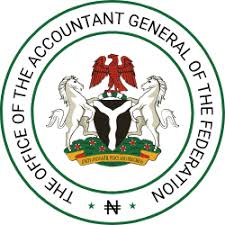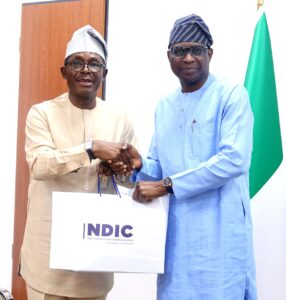Nigeria has implemented major reforms over the last 2 years which have improved macroeconomic stability and enhanced resilience. The country successfully tapped the Eurobond market and earned a credit rating upgrade, pointing to improved confidence. Growth has been steady but too low in per-capita terms, and inflation remains high. Gains have yet to benefit all Nigerians. Food insecurity and poverty have risen. Half-way through its term, the government is now focused on raising growth, while adapting to the spillovers from the changing global environment.
The Executive Board of the International Monetary Fund (IMF) has praised the country’s monetary and fiscal authorities for successfully implementing significant reforms over the past two years as it concludes the 2025 Article IV Consultation with Nigeria.
The fund in a statement disclosed that the team also welcomed the related gains in macroeconomic stability and resilience.
A statement issued in Washington, DC, on behalf of Mr. Christian Ebeke, IMF resident representative for Nigeria noted that the Central Bank of Nigeria was appropriately maintaining a tight monetary policy stance, which should continue until disinflation becomes entrenched.
The IMF while recognising measures to strengthen the banking system, including the ongoing recapitalisation process welcomed the CBN’s efforts to enhance financial inclusion and promote capital market growth, and emphasised the need to adopt a robust risk-based supervision for mortgage and consumer lending schemes and the fintech and crypto sectors.
The IMF team also commended the efforts to strengthen the AML/CFT framework and stressed the importance of resolving remaining weaknesses to exit the FATF grey list as soon as possible. They applauded discontinuing deficit monetisation and ongoing efforts to strengthen central bank governance to set the institutional foundation for inflation targeting.
According to the statement, the Directors also applauded steps taken by the authorities to build reserves and bolster market confidence. They singled out the Bank’s reforms in the foreign exchange market and called for the implementation of a robust foreign exchange intervention framework that is focused on containing excess volatility, emphasising that the exchange rate is an important shock absorber.
“The Nigerian authorities have implemented major reforms over the past two years, improving macroeconomic stability and enhancing resilience. The authorities have removed costly fuel subsidies, stopped monetary financing of the fiscal deficit and improved the functioning of the foreign exchange market. Investor confidence has strengthened, helping Nigeria successfully tap the Eurobond market and leading to a resumption of portfolio inflows.
The Report also projected that the new domestic refinery, higher oil production, and a strong services sector would propel Real GDP growth to 3.4 percent in 2025. On inflation, the visiting team concluded that Naira stabilisation, combined with improvements in food production reduced inflation to 23.7 percent year-on-year in April 2025, from a 31 percent annual average in 2024.
On the fiscal side, the Article IV report noted improved performance in 2024, adding that revenues benefited from naira depreciation, enhanced revenue administration, and higher grants, which more than offset rising interest and overhead spending.
The report also noted that downside risks have increased with heightened global uncertainty. It stressed that a further decline in oil prices or an increase in financing costs would adversely affect growth, fiscal and external positions, undermine financial stability, and exacerbate exchange rate pressures. A deterioration of security could impact growth and food insecurity.
While observing that the gains had yet to benefit all Nigerians, coupled with heightened economic uncertainty and significant downside risks, the IMF Directors emphasised the importance of agile policy making to safeguard and enhance macroeconomic stability, create enabling conditions to boost growth, and reduce poverty. They also urged the phasing out of existing capital flow management measures in a properly timed and sequenced manner.
They called for a neutral fiscal stance to safeguard macroeconomic stabilisation, prioritising investments that support growth and urged accelerated delivery of cash transfers to help the poor.
The visiting IMF Directors commended the fiscal authorities for advancing the tax reform bill, which is a significant step towards boosting revenue mobilisation and creating fiscal space for development spending while maintaining debt sustainability.
The report highlighted the importance of tackling security, red tape, agricultural productivity, infrastructure gaps, including boosting electricity supply, as well as improved health and education spending, and making the economy more resilient to climate events to lift Nigeria’s growth outlook, improve food security, and reduce fragility.
Good production costs money and you can support what we do. Please find our details below👇🏾👇🏾👇🏾 Account name: MARKET ONLINE MEDIA Bank: UBA Acc No: 1026401930.






























